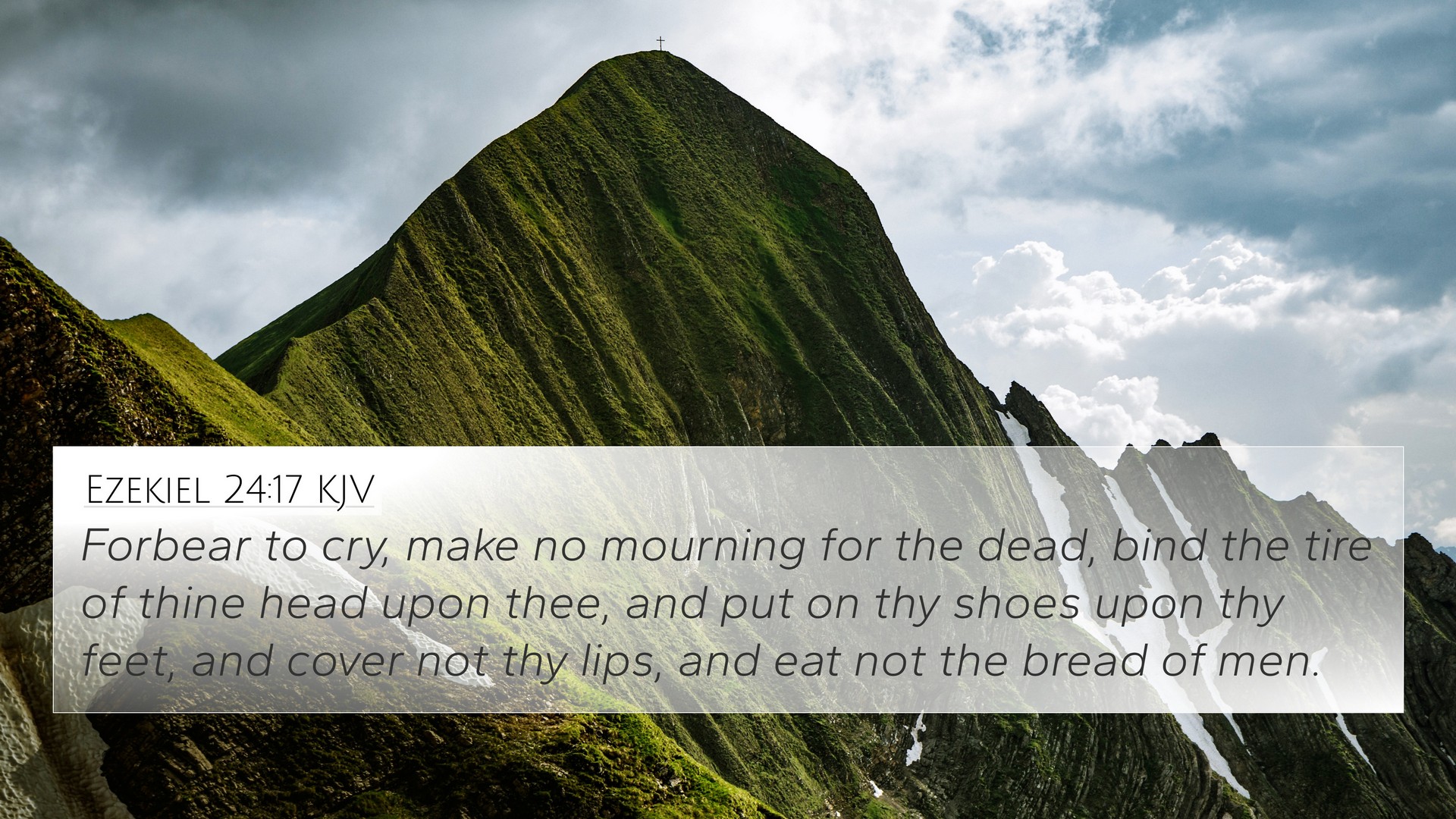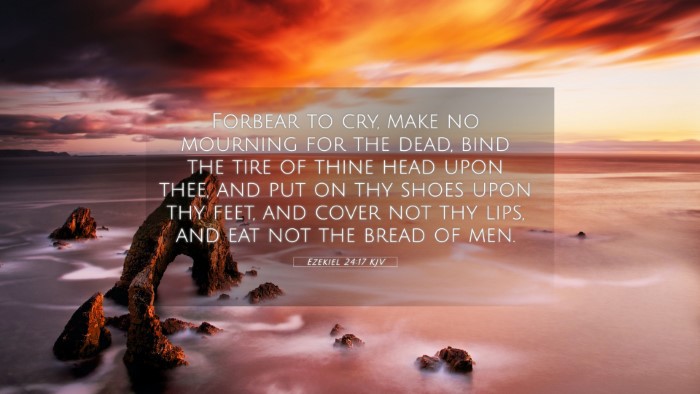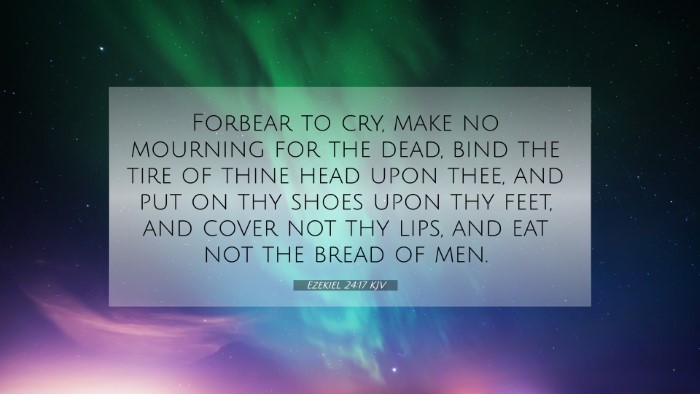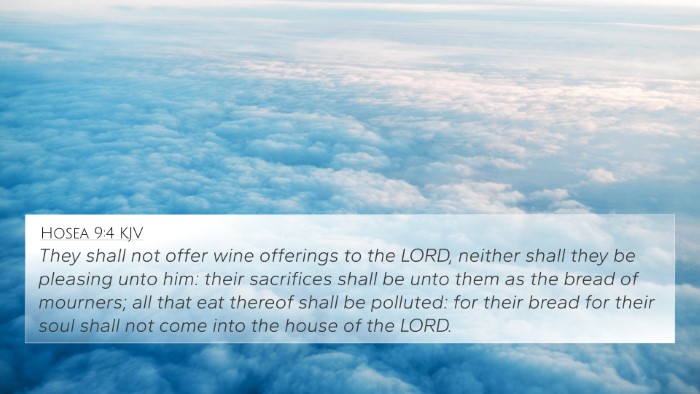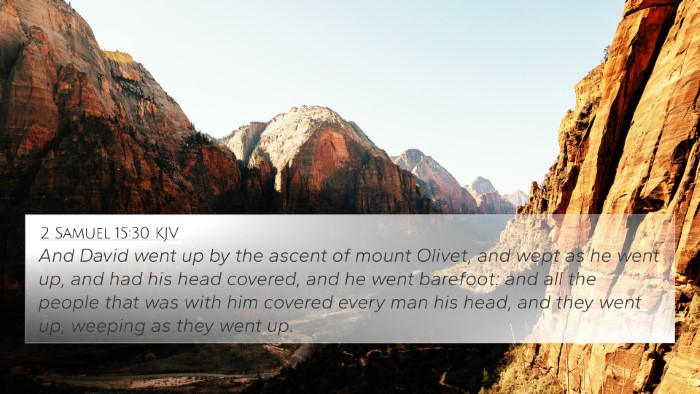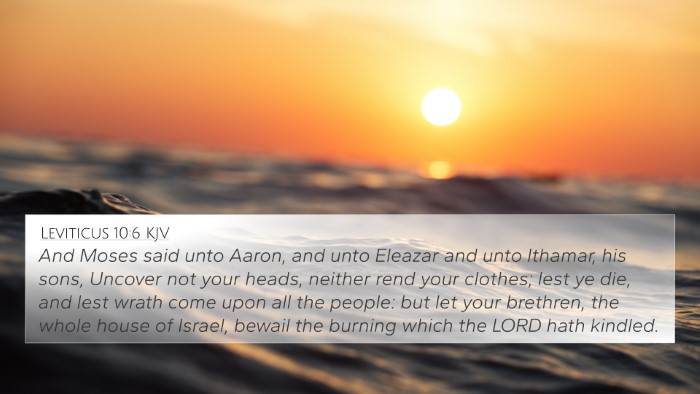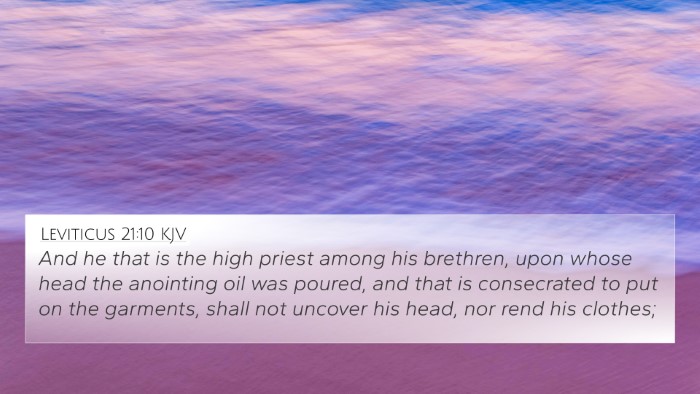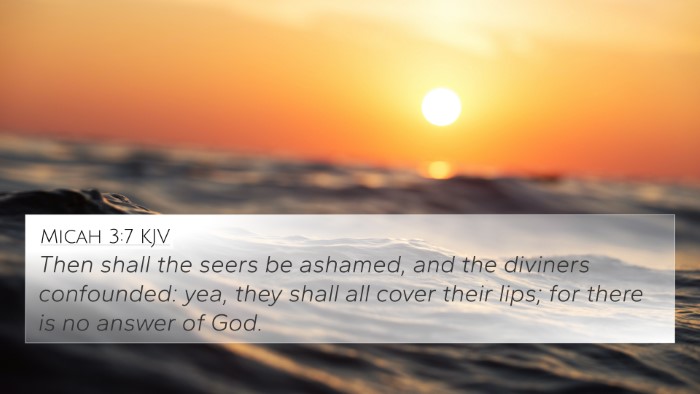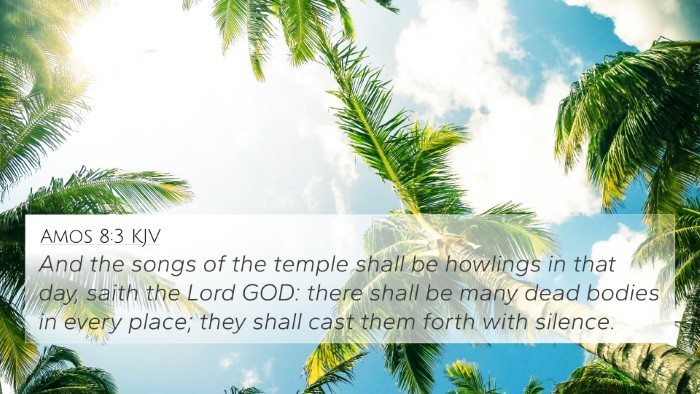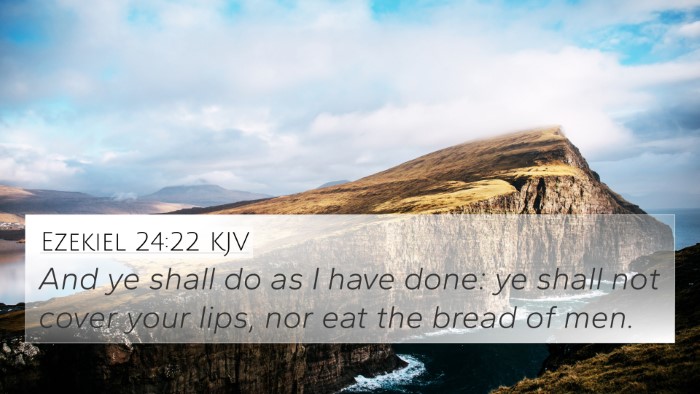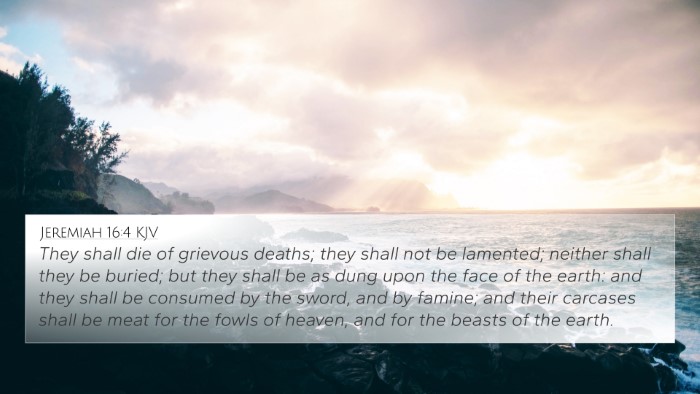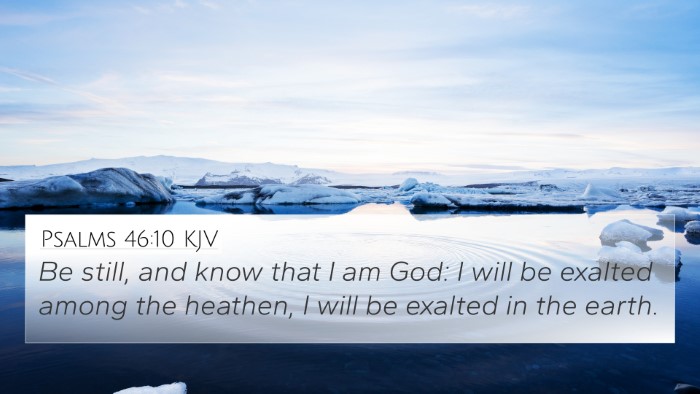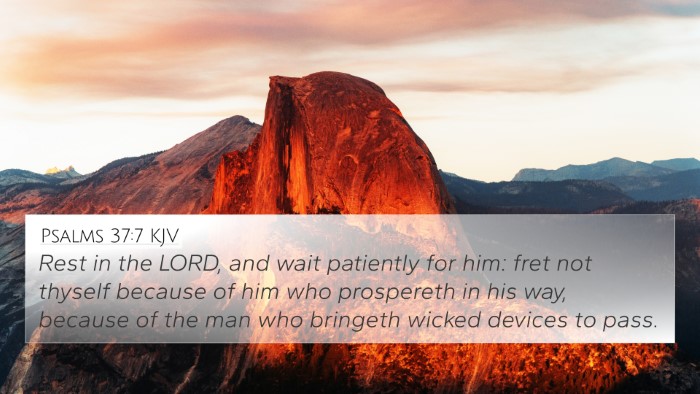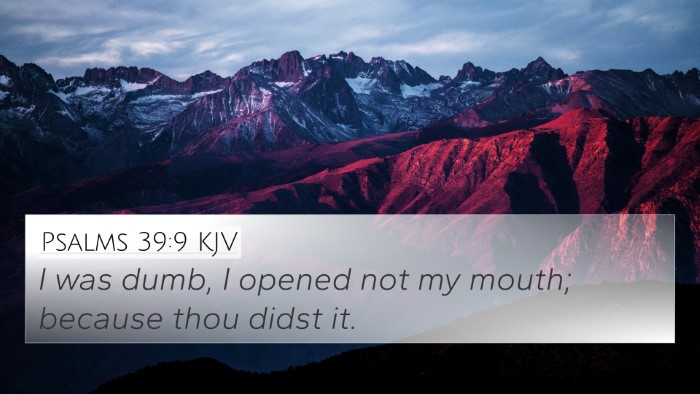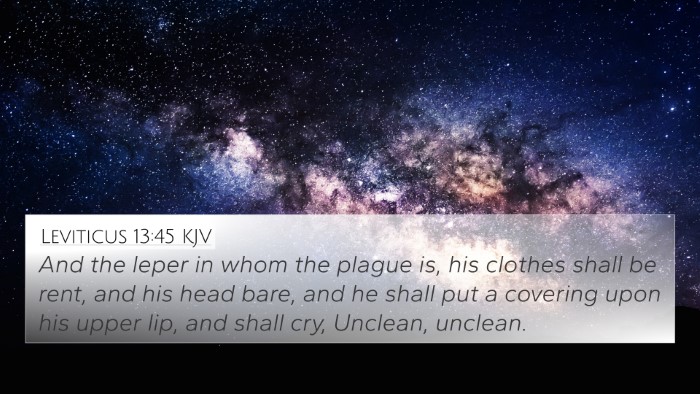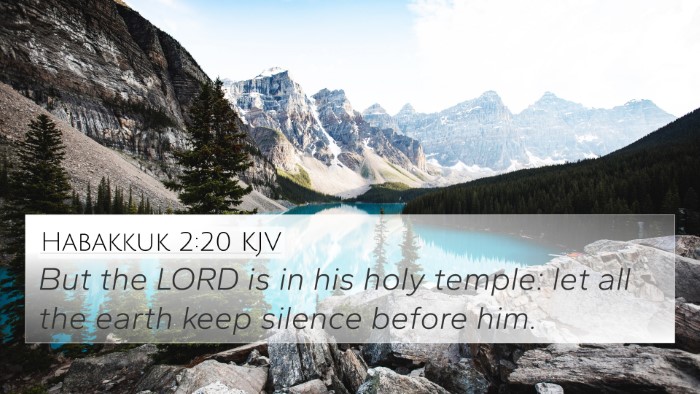Ezekiel 24:17 - Summary and Meaning
Bible Verse: Ezekiel 24:17 - "Sigh deeply, but not aloud; make no mourning for the dead. Bind on your turban, and put your shoes on your feet; do not cover your lips, and do not eat the bread of mourning."
Understanding Ezekiel 24:17
This verse occurs in a context filled with prophetic significance. Ezekiel is instructed by God to demonstrate profound grief yet do so in a manner that is outwardly restrained. The implications of this command illustrate the weight of loss while simultaneously reminding us of the divine purpose behind Israel’s suffering and judgment.
Commentary Insights
Matthew Henry's Commentary
Matthew Henry emphasizes the gravity of Ezekiel's symbolic actions. By refusing to mourn openly, Ezekiel is portrayed as a watchman showing how deeply the judgment of God impacts the people. This verse reflects a broader theme of the need for prophetic authenticity; even in sorrow, God’s ordained mission continues.
Albert Barnes' Notes
Albert Barnes outlines that Ezekiel’s actions were not only symbolic but served as a prophetic demonstration to the people of Israel. His silence and restraint were to express the futility of mourning over their impending doom. Barnes also notes that this teaches a lesson about the importance of maintaining dignity and order in times of crisis.
Adam Clarke's Commentary
Adam Clarke highlights the irony in God’s command. While Ezekiel's heart was breaking over Israel's sin and its consequences, he was to appear as one who accepted his prophetical role seriously. Clarke suggests that the commanded restraint could be seen as a prophetic call for the people to reflect on their spiritual condition and the seriousness of their situation before God.
Biblical Context and Thematic Connections
Ezekiel 24:17 fits within a larger narrative of judgment against Jerusalem, emphasizing the tension between divine justice and human emotion.
Cross-References Related to Ezekiel 24:17
- Ezekiel 3:15: "Then I came to the exiles at Tel Abib, who dwelt by the river Chebar; and I sat where they were, and remained there astonished among them seven days."
- Ezekiel 30:19: "Thus will I execute judgment on Egypt, and they shall know that I am the Lord." (Context of mourning for a fallen nation)
- Jeremiah 25:34: "Wail, you shepherds, and cry; and wallow in ashes, you leaders of the flock..." (Prophetic mourning)
- Romans 12:15: "Rejoice with those who rejoice, and weep with those who weep." (Emotional response to loss)
- Zechariah 12:10: "And I will pour out on the house of David and the inhabitants of Jerusalem a spirit of grace and supplication." (Recognition of mourning for sin)
- Acts 20:19: "Serving the Lord with all humility, with tears and with trials..." (Apostolic perspective on grief)
- Matthew 5:4: "Blessed are those who mourn, for they shall be comforted." (Divine comfort in mourning)
Themes and Interpretation
This verse represents a thematic tension between mourning and prophetic duty. Ezekiel's constraint can be seen as a model of reserved grief that seeks to honor God's purpose amidst suffering.
Thematic Connections
- The Burden of Prophecy: The challenge of maintaining duty when faced with personal anguish.
- God's Sovereignty in Judgments: How divine justice necessitates a different mode of grieving.
- Public versus Private Grief: The significance of how mourning is displayed externally versus the internal emotional experience.
Conclusion
Ezekiel 24:17 encapsulates a profound moment of prophetic action, challenging readers to understand the complexity of God’s calls amidst pain. It serves as a reminder of the weight carried by those who bear the message of God, even in deep sorrow.
